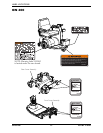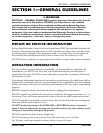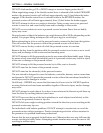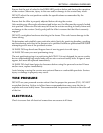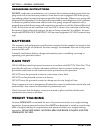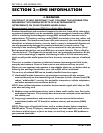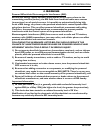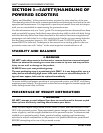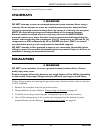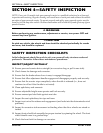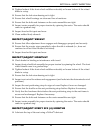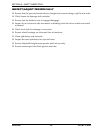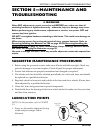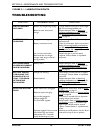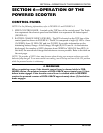
SAFETY/HANDLING OF POWERED SCOOTERS
300 and 400 20 Part No. 1118395
SECTION 3—SAFETY/HANDLING OF
POWERED SCOOTERS
“Safety and Handling” of the powered scooter requires the close attention of the user.
This manual points out the most common procedures and techniques involved in the safe
operation and maintenance. It is important to practice and master these safe techniques
until you are comfortable in maneuvering the powered scooter.
Use this information only as a “basic” guide. The techniques that are discussed have been
used successfully by many. Individual users often develop skills to deal with daily living
activities that may differ from those described in this manual. Invacare recognizes and
encourages each individual to try what works best for him/her in overcoming obstacles
that they may encounter; however, ALL WARNINGS and CAUTIONS given in this
manual MUST be followed. Techniques in this manual are a starting point for the new
powered scooter user with “safety” as the most important consideration for all.
STABILITY AND BALANCE
ƽ WARNING
DO NOT make sharp turns in the forward or reverse direction at excessive speed.
Failure to observe the warning can cause the scooter to tip over and may result in
injury to user and/ or damage to the product.
ALWAYS wear your seat positioning strap.
The seat positioning strap is a positioning belt ONLY. It is not designed for use as a
safety device withstanding high stress loads such as auto or aircraft safety belts. If
signs of wear appear, belt must be replaced immediately.
To assure stability and proper operation of your powered scooter, you MUST, at all times,
maintain proper balance. Your powered scooter has been designed to remain upright and
stable during normal daily activities.
PERCENTAGE OF WEIGHT DISTRIBUTION
ƽ WARNING
DO NOT attempt to reach objects if you have to move forward in the seat or pick
them up from the floor by reaching down between your knees.
Many activities require the powered scooter owner to reach, bend and transfer IN and
OUT of the powered scooter. These movements cause a change to the normal balance, the
center of gravity, and the weight distribution of the powered scooter. To determine and
establish your particular safety limits, practice bending, reaching and transferring
activities in several combinations in the presence of a qualified healthcare professional
BEFORE attempting active use of the powered scooter.



